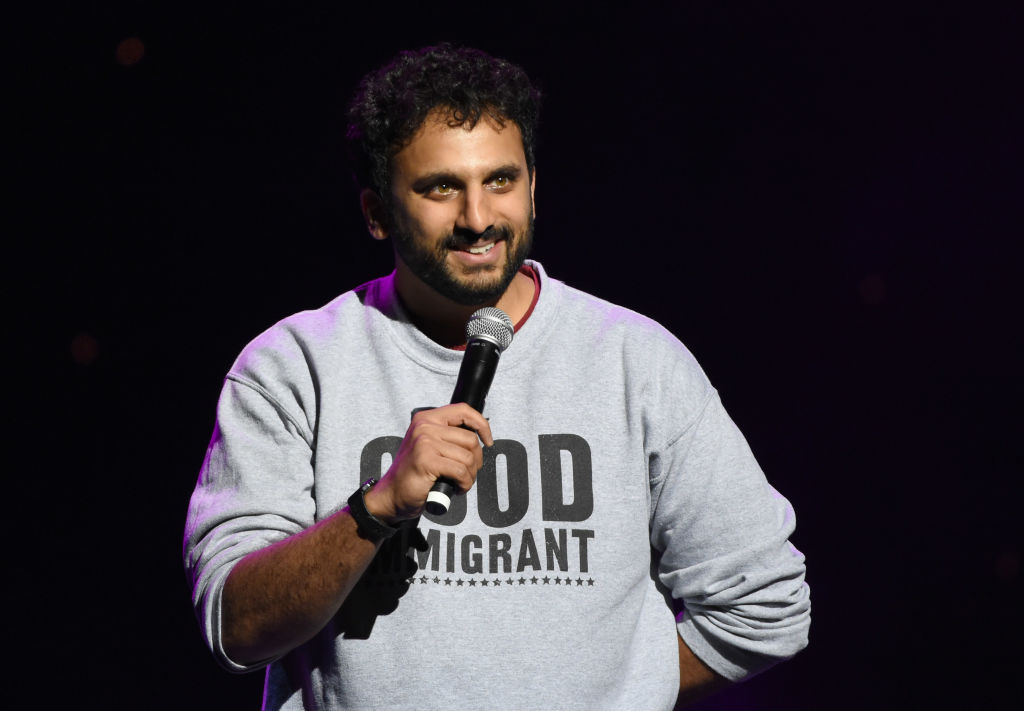Wading into the Sadiq Khan #HaveAWord brouhaha, Laurence Fox had a pop at Khan’s ally Romesh Ranganathan thus: ‘You are not a “comedian” #Maaate’. The dig came after Ranganathan teamed up with the London mayor in his campaign urging men to challenge their mates on their behaviour towards women. Fox had a point; when is a droll not a droll, but principally a state-sanctioned lapdog with a few lame gags on the side? Far too often in recent times.
One of the most striking things about our modern culture is the lack of creativity, even amongst those who work in the actual creative industries. Writers are now routinely sensitivity-read, censored and cancelled by the very people who should be encouraging them to be as bold as possible: their publishers.
The singer Sam Smith can say ‘I hate reading’ and also claim that ‘when people mess up a pronoun or something…it kind of ruins conversations…it’s going to take time. We’re changing a language here.’
Presumptuous buffoon; you hate reading yet you dare utter the words ‘we’re changing a language’ of the tongue which Shakespeare, Dickens and Jackie Collins wrote in? Changing your stylist might be a more achievable ambition, especially in the light of that recent ill-advised tennis dress.
Because of this we’ve come to think of the left – even the trade unions are buying into gender woo-woo – as envious lemon-suckers keen to raze the cultural landscape so they won’t be made to feel bad about not having anything to contribute culturally. A lot of the rage directed at JK Rowling seems to come from feeble minds who were intoxicated by her creativity as children, but who were unable to grasp that magical creations and magical thinking are two different things. They cannot comprehend that real life is grounded in biology rather than wizardry.
Far from needing guts, comedy is now the tamest trade in town
It wasn’t always so. Once, those who considered themselves communists were well-represented amongst artists from screenwriters to painters. Comedians came in all shades of political opinion, and shared a camaraderie which came from the unique nature of their maverick skill; with no backing band or another person’s words to hide behind, the chance of ‘dying’ was unparalleled in any other form of entertainment. Republican Bob Hope often hired young leftist comics to open for him in Las Vegas as he thought they were funnier than the junior copies of himself.
It hasn’t been that way for quite a while, probably since the election of Donald Trump and the subsequent mass meltdown of the western liberal establishment. Far from needing guts, comedy is now the tamest trade in town. Until recently if one could prove one’s slavish obedience to the new reign of inoffensiveness, a lifetime’s employment as a state-sponsored clown at the BBC was guaranteed. These types infested Radio 4 panel shows and if they showed particular talent for never saying anything unexpected they could hope for a promotion to television.
Sometimes, of course, they over-reached themselves; the axing of The Mash Report on the BBC was woke comedy’s Year Zero. The ghastly Nish Kumar proved genuinely amusing for the first time in his limp lettuce of a life having a hissy fit about his under-performing vehicle finally being towed away to the scrapyard. He fumed to the Observer of his binning:
‘It placates the British right. It gives the sharks a bit of blood…if the BBC does not say something publicly to make it clear they were not reacting to the political content of the show, it will set a bad precedent. It may well stop people pitching new programme ideas. There’s an important principle at stake…a person’s political leanings can have a bearing on what they get to do on television, which is unacceptable.’
But it actually was this way for almost a decade when it came to comedy. The BBC understood ‘diversity’ to be a spectrum of races and sexualities all parroting the same party line on everything from the wonder of trans to the horridness of Brexit – and belittling those who dared to think differently. Our exit from the the bloated behemoth in Brussels became the mother-in-law joke of BBC comedy. Just the mention of the B word was guaranteed to produce the groaning titter/tittering groan which has replaced the belly laugh as the indicator that we’re all like-minded people here.
Our exit from the the bloated behemoth in Brussels in particular became the mother-in-law joke of BBC comedy
Recently, though, the BBC have seemed to realise that this stale state of current affairs and their ever-increasing loss of an audience may be in some way linked, hence the heave-ho given to Frankie Boyle’s New World Order this spring and the uncertainty surrounding Ranganation. There’s a feeling that director-general Tim Davie is making an effort to encourage a bit of variation on the comedy front and wrest the panel games free of the Brexitphobe bed-wetters; a BBC insider, speaking of TV satire, told the Times: ‘It is definitely not dead – but we need to make room for fresh new voices and formats.’
To give Radio 4 credit for once on the comedy front, it is, of course, the home of Ed Reardon’s Week, a show which even after 18 years is matchless. Tellingly, it mocks both sides in the culture wars; the forever-fulminating libertine libertarians represented by Ed himself and the wishy-washy wokers (‘The twelve year olds!’) who make his once-lush life so difficult.
Laughing together is something that people often do as a means of cementing their social bonds and restating their group identity – primitive people probably told each other jokes about the idiot tribe over the hill to help them work better as a social unit. In that sense, comedy is nearly always exclusionary; even if an audience is just laughing at someone for doing something thick – as in the classic Irishman joke – it’s still a coded way of saying: ‘Us lot, we’re the clever ones!’. This reaches its shrill apotheosis at a stand-up comedy gig, where the physical presence of the comedian and the audience’s veneration of him/her as their pack leader creates an ever-escalating feedback loop of hysteria in which literally ANYTHING will be laughed at.
This only becomes something which needs tackling when an organisation with great power – the BBC – decides to put all the weight of state-sanctioning and a public money pit behind it. Of course, it’s not anywhere as bad a crime as – deep breath – the failure to root out a child rapist, the gender pay gap, the sacking of older women, the lies about Israel, the peddling of the myth that there are100 genders or the scandalous misreporting about Nigel Farage’s bank account. But BBC comedy has been yet another nail in the public shunning and resentment of Auntie, as it was so flagrantly mocking the hand that fed it.
Hopefully this is now passing and what has been a comedy desert may bloom again. The excellent Radio 4 Extra sometimes has the link-person recite the half-annoying, half-amusing warning before almost all comedy shows made more than five years ago (a rare exception being the very strange Whack-O! featuring a boy-beating, drunken headmaster) that ‘the following comedy reflects the broadcast standards, language and attitudes of its time.’
In the future, will the ghastly comedy of recent years be preceded by a more-in-sorrow-than-in-anger voice-over warning us that ‘this show reflects attitudes the broadcast standards, language and attitudes of its time, when being a mealy-mouthed misanthrope who hated the masses was more important than being funny’? It would certainly get a chuckle from me.







Comments